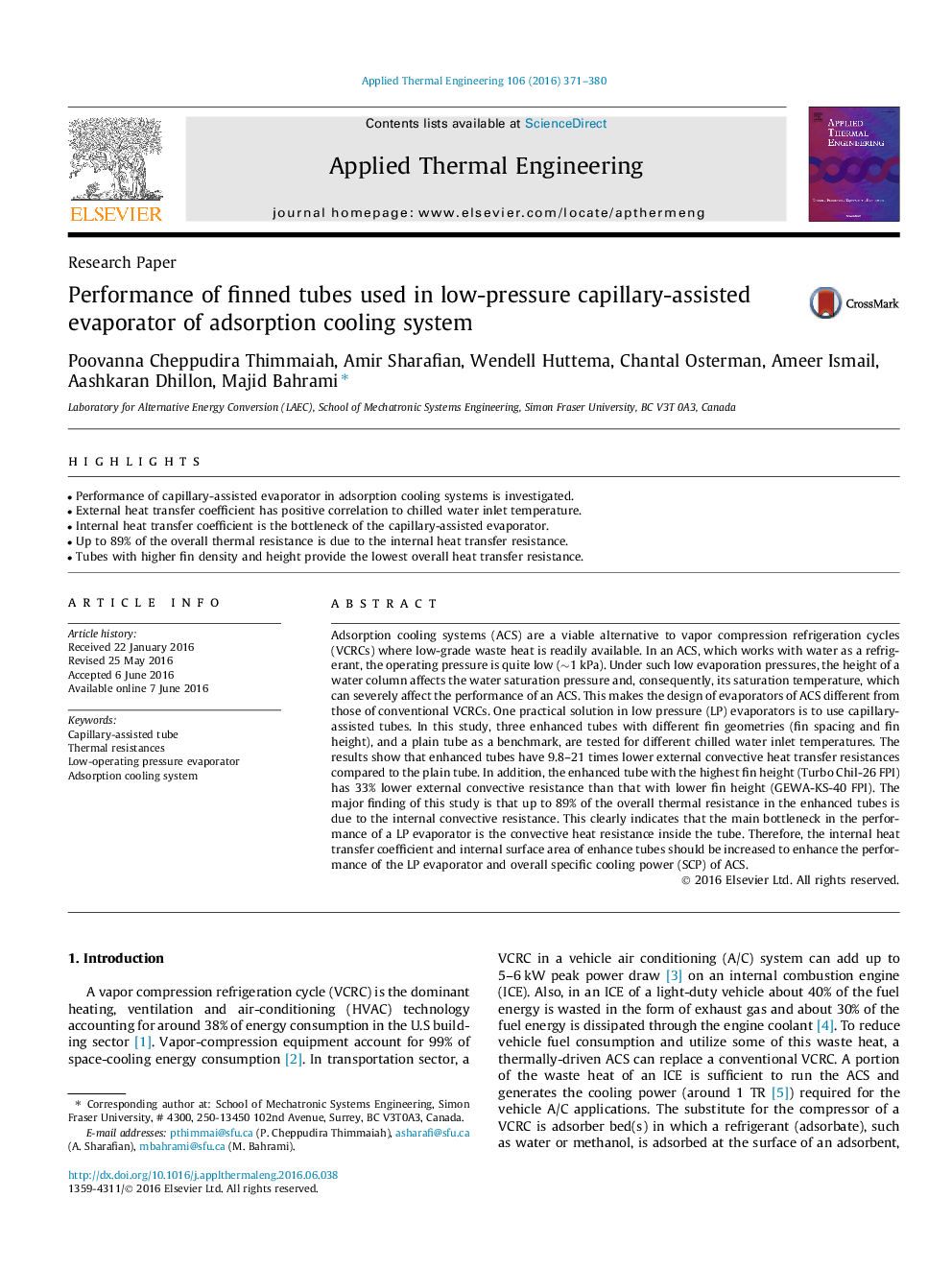| Article ID | Journal | Published Year | Pages | File Type |
|---|---|---|---|---|
| 7047434 | Applied Thermal Engineering | 2016 | 10 Pages |
Abstract
Adsorption cooling systems (ACS) are a viable alternative to vapor compression refrigeration cycles (VCRCs) where low-grade waste heat is readily available. In an ACS, which works with water as a refrigerant, the operating pressure is quite low (â¼1Â kPa). Under such low evaporation pressures, the height of a water column affects the water saturation pressure and, consequently, its saturation temperature, which can severely affect the performance of an ACS. This makes the design of evaporators of ACS different from those of conventional VCRCs. One practical solution in low pressure (LP) evaporators is to use capillary-assisted tubes. In this study, three enhanced tubes with different fin geometries (fin spacing and fin height), and a plain tube as a benchmark, are tested for different chilled water inlet temperatures. The results show that enhanced tubes have 9.8-21 times lower external convective heat transfer resistances compared to the plain tube. In addition, the enhanced tube with the highest fin height (Turbo Chil-26 FPI) has 33% lower external convective resistance than that with lower fin height (GEWA-KS-40 FPI). The major finding of this study is that up to 89% of the overall thermal resistance in the enhanced tubes is due to the internal convective resistance. This clearly indicates that the main bottleneck in the performance of a LP evaporator is the convective heat resistance inside the tube. Therefore, the internal heat transfer coefficient and internal surface area of enhance tubes should be increased to enhance the performance of the LP evaporator and overall specific cooling power (SCP) of ACS.
Related Topics
Physical Sciences and Engineering
Chemical Engineering
Fluid Flow and Transfer Processes
Authors
Poovanna Cheppudira Thimmaiah, Amir Sharafian, Wendell Huttema, Chantal Osterman, Ameer Ismail, Aashkaran Dhillon, Majid Bahrami,
